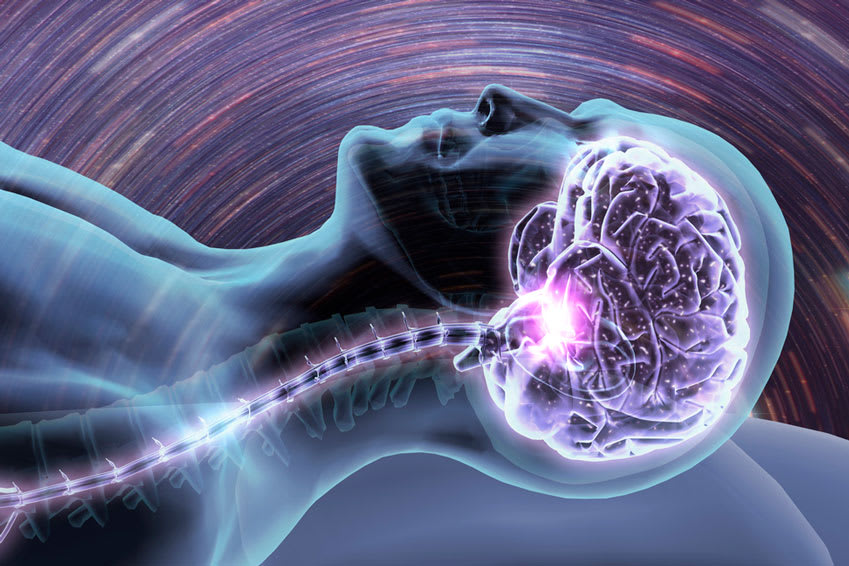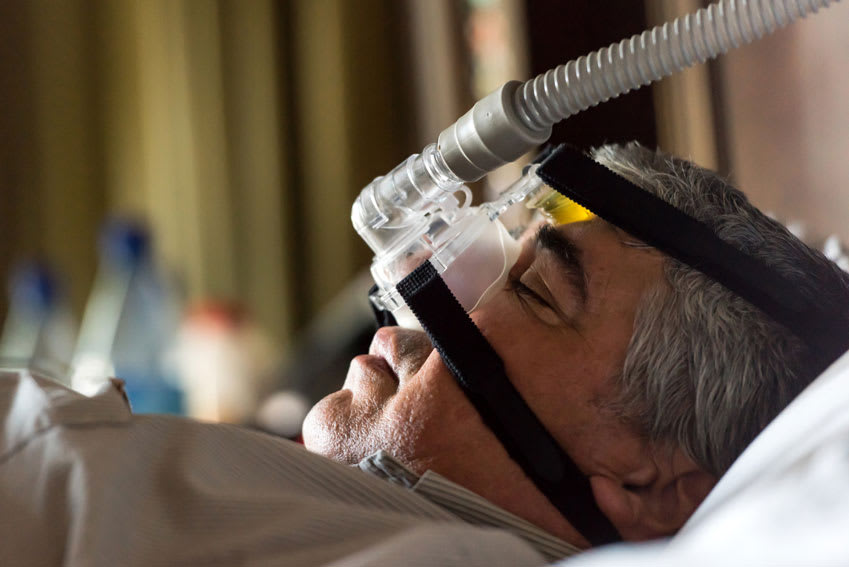People are into detox cleanses these days, but probably the best detox is the natural ones that your own body does by itself.
Cells and the organs have their own specialized mechanisms for cleaning up harmful materials – brain included.
When during the day does your brain detox the most? During sleep, of course. Sleep is essential for consolidating memories and information you learn during the day, but that’s not all it does. During sleep, your brain also goes into clean-up or detox mode, and that may be one of its most crucial functions.
Your Brain is Highly Active
The nerve cells in your brain use a very high percentage of the oxygen you take in with each breath. It’s not surprising, then, that the brain produces soluble waste proteins and metabolic products that must be removed for the brain to stay healthy.
Some of the most concerning waste products include β-amyloid proteins. These are the same proteins that people with Alzheimer’s disease accumulate in abundance.
At one time, scientists believed the brain didn’t have an efficient way to eliminate β-amyloid proteins. But in the 1980s, scientists discovered a system called the glymphatic system, which permits the flow cerebrospinal fluid which surrounds your brain and spinal cord. In effect, the glymphatic system is like waste management for the brain.
Sleep and Brain Detox
Right from the beginning of life, the glymphatic system is at work. When is it most active? You guessed it — the greatest flow of cerebrospinal fluid occurs during sleep.
When you enter the deeper stages of sleep, more fluid flows into the glymphatics, and flushing increases. Flushing can remove harmful substances, such as β-amyloid, that build up in the brain.
Sleep occurs in various stages. REM (rapid eye movement) sleep is the time when you dream and when your eyes dart around underneath your eyelids. But another stage of sleep, non-REM sleep, is when most cell and tissue repair occurs. This is also when the glymphatic system is most active.
If you’re sleep-deprived, your glymphatic system will be less efficient at removing damaged protein, like β-amyloid, from your brain. Studies in various animal species, including humans, show that β-amyloid levels increase in the brain during periods of sleep deprivation.
The glymphatic system, your brain’s detox mechanism, is mostly inactive during the day, showing how important sleep is for brain health. Timing of sleep may also be a factor. Some research shows the glymphatic system doesn’t function as well in people who do night shift work.
Exposing your eyes to light at night when you’re meant to sleep creates a harmful circadian shift. Several studies have linked shift work and circadian disruption to health problems, including certain types of cancer, obesity, type 2 diabetes, and possibly Alzheimer’s disease.
Likewise, other factors that can reduce the function of the glymphatics are brain injury and certain medical conditions, including obesity, stroke, type diabetes, and hypertension.
Apnea and Other Sleep Disorders
A growing concern in the field of health is the effect that Sleep Disordered Breathing issues can have on the body. When SDB’s such as apnea prevent people from having a good night’s sleep, this in turn affects the ability of the brain to detoxify itself. That is why it is so important to learn if one is suffering from an SDB and seek treatment as soon as possible.
Quality Sleep Matters for Brain Health
Studies show that even one night of sleep deprivation increases the amount of β-amyloid in regions of the brain, including areas involved with memory. The glymphatics also become more sluggish with age. So, getting enough sleep can help optimize the function that remains.
It’s a good idea to try and turn in by 10:00 P.M. Staying up late can disrupt your body’s circadian rhythms and affects the production of melatonin, the sleep hormone.
Dive Into Bed!
Like other major organs in your body, your brain needs to detoxify itself, and this works best when you get a good night’s sleep. Research shows most adults need 7 to 8 hours of sleep per night for optimal health and a healthy brain. Put away the electronic devices before bed, too. The blue light they emit makes it harder to fall asleep. Prioritize sleep. It’s that important.
If you have sleep issues, speak with us – we’ll help you determine why.
References:
Jessen NA, Munk AS, Lundgaard I, Nedergaard M. The Glymphatic System: A Beginner’s Guide. Neurochem Res. 2015 Dec;40(12):2583-99. doi: 10.1007/s11064-015-1581-6. Epub 2015 May 7. PMID: 25947369; PMCID: PMC4636982.
Homolak J, Mudrovčić M, Vukić B, Toljan K. Circadian Rhythm and Alzheimer’s Disease. Med Sci (Basel). 2018;6(3):52. Published 2018 Jun 21. doi:10.3390/medsci6030052.
Nedergaard M, Goldman SA. Glymphatic failure as a final common pathway to dementia. Science. 2020 Oct 2;370(6512):50-56. doi: 10.1126/science.abb8739. PMID: 33004510; PMCID: PMC8186542.
Saeed Y, Abbott SM. Circadian Disruption Associated with Alzheimer’s Disease. Curr Neurol Neurosci Rep. 2017 Apr;17(4):29. doi: 10.1007/s11910-017-0745-y. PMID: 28324298.
JAMA Volume 325. Number 21. June 1, 2021.
“Does Sleep Flush Wastes From the Brain? | Neurology | JAMA ….” 01 Jun. 2021, jamanetwork.com/journals/jama/fullarticle/2780296.






